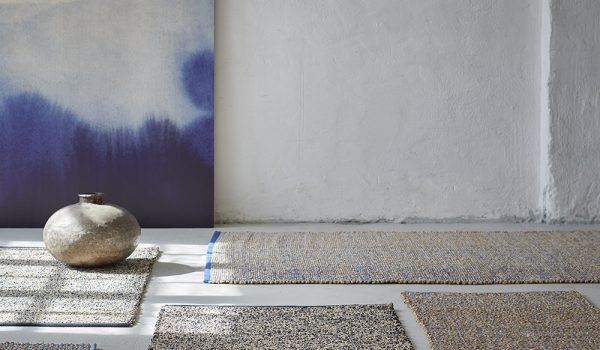ECOR part of Embassy of Sustainable Design during Dutch Design Week
Circular economy requires cooperation and sharing of knowledge
Together we can create an impact on the road to a circular economy and a more sustainable way of life: business, designers, knowledge institutions, government and also consumers. But that is only possible in an atmosphere of open and transparent cooperation and the sharing of knowledge. That is the message that the Embassy of Sustainable Design propagates during the Dutch Design Week (19-27 October). With an appealing exhibition, surprising presentations and workshops, the participants, including several large companies, offer a look behind the scenes. To learn from each other and to forge a network of change agents.
Urgency
With the theme “If not now, then when” DDW 2019 emphasizes the urgency of the desired transition to sustainability and a more circular economy. That reaches much further than putting “green” products on the market. The road to a circular economy is a complex process that requires clear vision and goals, sufficient investments and sometimes daring choices for a difficult route, focused on the long term. And for new business models. Large companies, in particular, can have a lot of impact because of their market position and scale, in close collaboration with suppliers and buyers throughout the entire chain.
Fully circular
Ikea wants to be fully circular by 2030 and at DDW, as a participant of the Embassy of Sustainable Design, tells about the way there – the successes and plans, but also about the pitfalls and challenges. For example, the Swedish home department store invests in renewable energy and the reuse of waste streams and experiments with renting, leasing and sharing products. The department store is also experimenting with renting, leasing and sharing products. The NS (Dutch Railways) also have serious ambitions on the rails to circularity and show how you can reuse and recycle all parts and materials from a complete train set into new products. With a proper initial choice of construction material, such as ECOR, you can turn the train ceilings into a desk, for example, and turn the floors into a tabletop football set.
Complex and far-reaching
Almost two-thirds of all the waste that Renewi collects is processed into new raw material. The company asked students from the Design Academy Eindhoven to come up with sustainable solutions for six waste streams that cannot yet be recycled. With an exhibition pavilion composed of re-used classrooms, and an apartment, DeMeeuw shows the possibilities for modular and circular construction and living. In the pavilion, Artez Future Makers (Institute of the Arts), in collaboration with well-known designers, shows in an interactive way how complex and far-reaching the concept of circularity is, using a simple product such as a T-shirt. And of course, the main exhibition itself is also set up as sustainable and circular as possible through contributions from Gielissen, DSM-Niaga and ECOR in particular.
| Description: Embassy of Sustainable Design 19-27 October
Locations: Strijp S & T, Innovation Powerhouse, Gloeilampenplantsoen, Yksi Expo Partnered with: ArtEZ Future Makers, CIRCO, DeMeeuw, Design Academy Eindhoven, DSM-Niaga, ECOR, Firm of the Future, FrieslandCampina, Gielissen Interiors | Exhibitions | Events, Hogeschool van Amsterdam, IKEA Nederland, NS, Provincie Noord-Brabant, KPMG, RB, Renewi, TU Delft, TU/e, Wageningen University & Research, Yksi Expo |
 With the FÖRÄNDRING collection, IKEA wants to prevent the burning of rice straw by using it as raw material for products.
With the FÖRÄNDRING collection, IKEA wants to prevent the burning of rice straw by using it as raw material for products.

